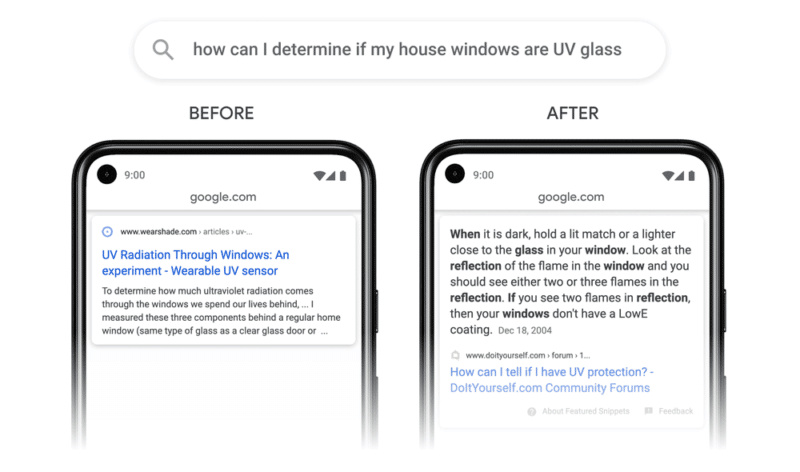Google has just announced a change in its algorithm that, when implemented, will significantly change the ranking for about 7% of global searches. The change, certainly to the benefit of users, could reshuffle the SERP for long tail phrases.
For specialized, highly specific phrases, a small revolution is brewing in Google search results. The giant has just announced a change in approach for this type of query – from indexing the site as a whole, it may switch to indexing “fragments” of pages.
Spis treści
What does it mean that Google will focus on page fragments?
In practice, this means that for specific queries it will be better to rank a snippet from page B that perfectly answers the question asked, rather than page A which will treat the topic more generally. Even if the rest of page B will be completely irrelevant to the topic, and page A will discuss the overall topic more comprehensively.
Of course, this will only apply to precise queries that require a specific answer.

What does this mean for onsite SEO?
The novelty does not affect the way pages are indexed – they will still be indexed in their entirety. Treating page fragments as separate units will instead affect rankings.
For phrases affected by the changes, we can expect a reduction in the importance of elements such as meta title. After all, since Google is going to show us a result just because it answers the question in one part and may be completely inappropriate in the rest, attaching importance to the title is pointless.
On the other hand, the importance of H1, H2, etc. headings may increase, which can provide additional hints about the subject matter of the passage.
In the end, simply answering the user’s intent and question will remain the most important anyway.
The changes will also not be unaffected by “0” items, i.e. rich snippets. Until now, of course, the algorithm displayed the relevant snippet in the snippet, but decided which page to present in the snippet based on an overall assessment of the relevance of the page, not the snippet.
When will the changes take effect?
In the U.S., the changes will be implemented in November 2020, then it will be time for other markets. Once implemented, the changes are expected to affect approx. 7% of all searches, and “this is just the beginning.”

